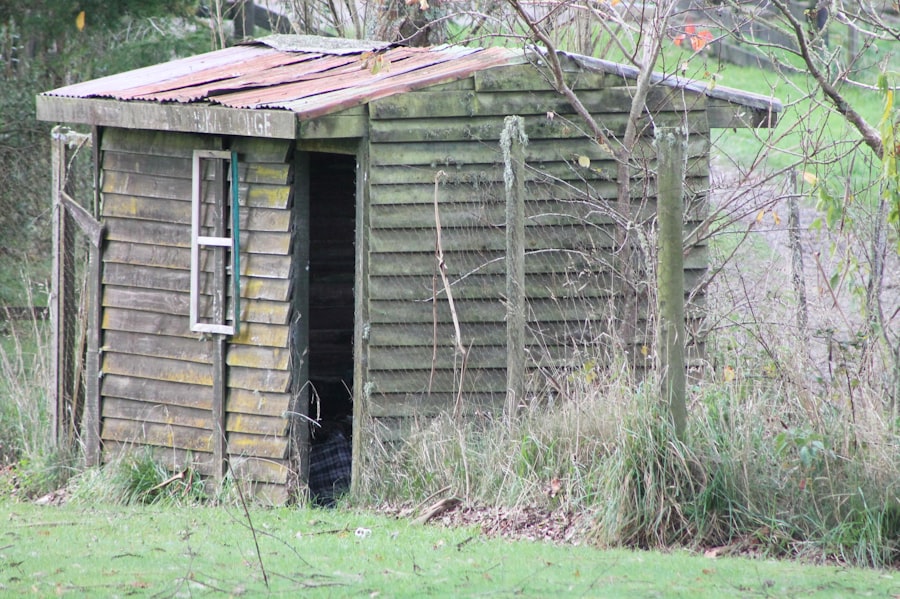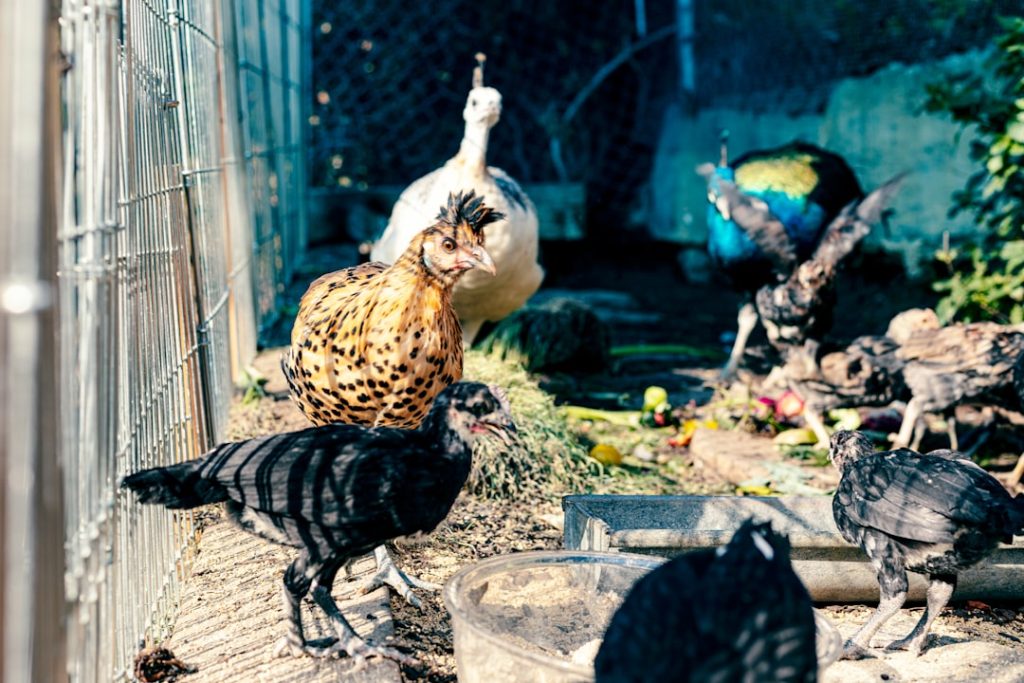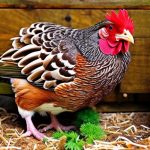Zimbabwe, a southern African nation, experiences a subtropical climate characterized by distinct wet and dry seasons. The country’s climate features hot summers and mild winters, with temperature variations across different regions. This climate poses challenges for broiler chicken farming, as these birds are sensitive to temperature extremes.
During hot summers, broiler chickens risk heat stress, potentially leading to reduced feed intake, stunted growth, and increased mortality. Conversely, mild winters may necessitate additional heating to maintain optimal growth and health for the chickens. The environmental conditions in Zimbabwe significantly impact broiler chicken welfare.
Proper ventilation is crucial for maintaining good air quality and preventing respiratory issues. Adequate shelter is also essential to protect birds from heavy rains and strong winds. Understanding Zimbabwe’s climate and environment is vital for successful broiler chicken farming.
These factors must be considered when selecting breeds, constructing housing, and implementing management practices to ensure the health and productivity of broiler chickens. While Zimbabwe’s climate and environment present challenges for broiler chicken farming, they also offer opportunities. By comprehending these factors, farmers can make informed decisions to create suitable and sustainable environments for their broiler chickens, ultimately leading to more successful farming operations.
Table of Contents
- 1 Selecting the right breed of broiler chickens for Zimbabwe
- 2 Building suitable housing and infrastructure for broiler chickens in Zimbabwe
- 3 Providing the right nutrition and feeding regimen for broiler chickens in Zimbabwe
- 4 Implementing effective health and disease management practices for broiler chickens in Zimbabwe
- 5 Managing the growth and development of broiler chickens in Zimbabwe
- 6 Marketing and selling broiler chickens in Zimbabwe
- 7 FAQs
- 7.1 What are broiler chickens?
- 7.2 What are the key factors to consider when keeping broiler chickens in Zimbabwe?
- 7.3 What type of housing is suitable for broiler chickens in Zimbabwe?
- 7.4 What should be included in the diet of broiler chickens in Zimbabwe?
- 7.5 How can disease management be addressed when keeping broiler chickens in Zimbabwe?
- 7.6 What are the market opportunities for broiler chicken farmers in Zimbabwe?
Key Takeaways
- Zimbabwe has a subtropical climate with distinct wet and dry seasons, so it’s important to consider temperature and humidity control when raising broiler chickens.
- When selecting broiler chicken breeds for Zimbabwe, consider factors such as heat tolerance, disease resistance, and growth rate to ensure suitability for the local environment.
- Building housing with proper ventilation, insulation, and protection from predators is essential for broiler chickens in Zimbabwe, as well as providing adequate space and access to clean water.
- A balanced diet with locally available feed ingredients and a feeding regimen that promotes rapid growth and efficient conversion of feed is crucial for broiler chickens in Zimbabwe.
- Implementing biosecurity measures, vaccination programs, and regular health monitoring are key components of effective disease management for broiler chickens in Zimbabwe.
- Monitoring growth rates, managing stocking densities, and providing appropriate lighting schedules are important for the growth and development of broiler chickens in Zimbabwe.
- Understanding local market demand, pricing strategies, and distribution channels is essential for successfully marketing and selling broiler chickens in Zimbabwe.
Selecting the right breed of broiler chickens for Zimbabwe
Climate Resilience
When selecting a breed of broiler chickens for Zimbabwe, it is crucial to consider the local climate and environmental conditions. The chosen breed should be well-suited to withstand the country’s fluctuating temperatures throughout the year, being resilient to both heat stress and cold temperatures.
Productivity and Disease Resistance
The breed should also have good feed conversion rates, enabling it to reach market weight efficiently. Furthermore, disease resistance is a vital consideration, as certain breeds may possess genetic traits that make them more resistant to common poultry diseases prevalent in the region. This can help reduce the risk of disease outbreaks and minimize the need for extensive medical interventions.
Market Demand and Profitability
The market demand for specific chicken products should also influence breed selection. Some breeds may be better suited for meat production, while others may be preferred for egg-laying purposes. Understanding market preferences and consumer demands can help farmers choose breeds that are most profitable for their operations. By selecting breeds that meet consumer preferences, farmers can maximize their productivity and profitability.
Building suitable housing and infrastructure for broiler chickens in Zimbabwe

Building suitable housing and infrastructure is crucial for the successful rearing of broiler chickens in Zimbabwe. The housing should provide a comfortable and safe environment for the birds while protecting them from adverse weather conditions. In Zimbabwe’s subtropical climate, proper ventilation is essential to prevent heat stress during hot summers and maintain good air quality throughout the year.
Adequate insulation and ventilation systems should be incorporated into the housing design to regulate temperature and humidity levels. Furthermore, the housing should be designed to offer protection from predators and pests that can pose a threat to the broiler chickens. Secure fencing, predator-proof enclosures, and regular pest control measures are necessary to ensure the safety and well-being of the birds.
In addition to housing, infrastructure such as feeding and watering systems should be carefully planned to provide easy access to feed and water for the broiler chickens. Proper waste management systems should also be in place to maintain cleanliness and hygiene within the housing facilities. Overall, building suitable housing and infrastructure for broiler chickens in Zimbabwe requires careful planning and attention to detail.
By creating a comfortable, secure, and well-equipped environment for the birds, farmers can promote their health and productivity.
Providing the right nutrition and feeding regimen for broiler chickens in Zimbabwe
Providing the right nutrition and feeding regimen is essential for the optimal growth and development of broiler chickens in Zimbabwe. A well-balanced diet that meets the nutritional requirements of the birds at each stage of growth is crucial for achieving good performance and profitability. In Zimbabwe, where feed costs can significantly impact production expenses, it is important to formulate cost-effective yet nutritionally balanced diets for broiler chickens.
Utilizing locally available feed ingredients and optimizing feed formulations can help reduce production costs while ensuring that the birds receive all essential nutrients for healthy growth. Feeding regimens should also be carefully planned to meet the specific needs of broiler chickens at different stages of development. Starter diets with higher protein levels are typically provided during the early growth phase, followed by grower diets with slightly lower protein levels as the birds mature.
Finally, finisher diets with reduced protein content are given during the last stage of growth to promote efficient weight gain. In addition to providing a balanced diet, access to clean water at all times is essential for broiler chickens’ health and well-being. Proper water management systems should be in place to ensure that the birds have an adequate supply of clean water throughout the day.
In conclusion, providing the right nutrition and feeding regimen for broiler chickens in Zimbabwe is crucial for maximizing growth performance and profitability. By formulating cost-effective diets that meet the birds’ nutritional requirements at each stage of development, farmers can optimize their production outcomes.
Implementing effective health and disease management practices for broiler chickens in Zimbabwe
Implementing effective health and disease management practices is essential for maintaining the well-being and productivity of broiler chickens in Zimbabwe. The country’s subtropical climate provides favorable conditions for the proliferation of various poultry diseases, making disease prevention and control a top priority for farmers. Vaccination programs play a critical role in preventing common poultry diseases such as Newcastle disease, infectious bronchitis, and Marek’s disease.
Regular vaccination schedules should be followed to provide broiler chickens with immunity against prevalent diseases in Zimbabwe. Furthermore, biosecurity measures should be implemented to minimize the risk of disease introduction and spread within poultry farms. This includes controlling access to the farm premises, practicing proper sanitation and hygiene protocols, and monitoring visitors and farm personnel for potential disease transmission.
Regular health monitoring and disease surveillance are also important components of effective disease management practices. Early detection of health issues allows for prompt intervention and treatment, reducing the impact of diseases on broiler chicken flocks. In addition to preventive measures, farmers should have a comprehensive understanding of common poultry diseases prevalent in Zimbabwe and be prepared to implement appropriate treatment protocols when necessary.
In conclusion, implementing effective health and disease management practices is crucial for ensuring the long-term success of broiler chicken farming in Zimbabwe. By prioritizing disease prevention through vaccination, biosecurity, and regular health monitoring, farmers can safeguard their flocks’ health and productivity.
Managing the growth and development of broiler chickens in Zimbabwe

Brooding Management: The Critical First Few Weeks
Proper management practices from chick placement to market age are essential for achieving optimal growth rates and uniformity within flocks. Brooding management is critical during the first few weeks of a broiler chicken’s life. Providing a warm, draft-free environment with access to clean water and starter feed is essential for promoting early growth and development. Monitoring temperature levels within the brooding area is crucial to prevent heat stress or chilling of chicks.
Housing Conditions: Ensuring Adequate Space and Ventilation
As broiler chickens grow, proper stocking density within housing facilities should be maintained to ensure adequate space for movement and minimize stress. Good ventilation systems are necessary to regulate temperature and humidity levels within the housing environment as birds reach market weight.
Feeding Regimens: Promoting Uniform Growth and Development
Managing feed allocation and access is important for promoting uniform growth within flocks. Feeding regimens should be carefully monitored to prevent under or overfeeding, which can impact growth performance and feed conversion efficiency.
Monitoring Flock Health and Performance
Finally, regular monitoring of flock health, behavior, and performance indicators such as feed consumption and weight gain is essential for identifying any issues that may affect growth and development. In conclusion, managing the growth and development of broiler chickens in Zimbabwe requires a holistic approach that encompasses proper brooding management, housing conditions, feeding regimens, and health monitoring. By implementing effective management practices at each stage of growth, farmers can optimize their flocks’ performance and profitability.
Marketing and selling broiler chickens in Zimbabwe
Marketing and selling broiler chickens in Zimbabwe require strategic planning to reach target consumers effectively while maximizing profitability. Understanding market demand, consumer preferences, and pricing trends is essential for developing successful marketing strategies. Identifying target markets such as local consumers, restaurants, supermarkets, or wholesalers can help farmers tailor their production volume and product offerings accordingly.
Establishing relationships with potential buyers or distributors can also facilitate sales opportunities. In addition to understanding market demand, branding and product presentation play a crucial role in attracting consumers’ attention. Packaging broiler chicken products in an appealing manner with clear labeling can enhance their marketability.
Pricing strategies should be carefully considered to ensure competitiveness while maintaining profitability. Factors such as production costs, market trends, and consumer purchasing power should be taken into account when setting prices for broiler chicken products. Finally, establishing effective distribution channels is essential for reaching consumers efficiently.
Whether through direct sales at farm gates or through partnerships with retailers or wholesalers, having reliable distribution networks is crucial for getting products into the hands of consumers. In conclusion, marketing and selling broiler chickens in Zimbabwe require a comprehensive understanding of market demand, consumer preferences, pricing strategies, branding, and distribution channels. By developing strategic marketing plans that align with market trends and consumer needs, farmers can successfully promote their products while maximizing sales opportunities.
If you’re interested in learning more about keeping chickens in Zimbabwe, you may also want to check out this article on choosing the right floor for your chicken coop. It provides valuable information on creating a suitable environment for your broiler chickens to thrive.
FAQs
What are broiler chickens?
Broiler chickens are a type of chicken that is specifically bred and raised for meat production. They are typically ready for slaughter at around 6-8 weeks of age.
What are the key factors to consider when keeping broiler chickens in Zimbabwe?
When keeping broiler chickens in Zimbabwe, it is important to consider factors such as housing, feeding, disease management, and market access. Proper housing with adequate ventilation and space, a balanced diet, vaccination against common diseases, and access to a reliable market are crucial for successful broiler chicken farming.
What type of housing is suitable for broiler chickens in Zimbabwe?
Suitable housing for broiler chickens in Zimbabwe should provide adequate space, good ventilation, protection from predators, and easy access to feed and water. The housing should also be easy to clean and maintain to ensure the health and well-being of the chickens.
What should be included in the diet of broiler chickens in Zimbabwe?
The diet of broiler chickens in Zimbabwe should include a balanced mix of protein, carbohydrates, vitamins, and minerals. This can be achieved through commercial broiler feed or a carefully formulated homemade feed. Access to clean water is also essential for the health and growth of broiler chickens.
How can disease management be addressed when keeping broiler chickens in Zimbabwe?
Disease management for broiler chickens in Zimbabwe involves vaccination against common poultry diseases, maintaining good hygiene and sanitation in the housing and feeding areas, and regular monitoring of the chickens for any signs of illness. It is also important to seek advice from veterinary professionals when necessary.
What are the market opportunities for broiler chicken farmers in Zimbabwe?
Broiler chicken farmers in Zimbabwe can access various market opportunities, including selling to local markets, supermarkets, restaurants, and wholesalers. It is important to establish reliable market connections and to produce high-quality, healthy chickens to meet the demand. Additionally, farmers can explore opportunities for exporting broiler chickens to neighboring countries.
Meet Walter, the feathered-friend fanatic of Florida! Nestled in the sunshine state, Walter struts through life with his feathered companions, clucking his way to happiness. With a coop that’s fancier than a five-star hotel, he’s the Don Juan of the chicken world. When he’s not teaching his hens to do the cha-cha, you’ll find him in a heated debate with his prized rooster, Sir Clucks-a-Lot. Walter’s poultry passion is no yolk; he’s the sunny-side-up guy you never knew you needed in your flock of friends!







